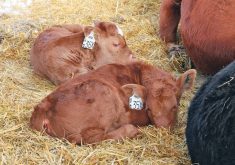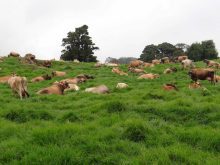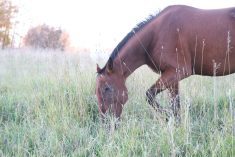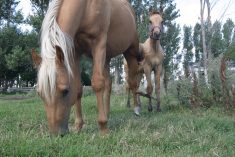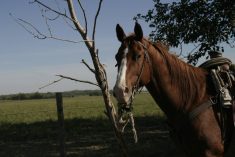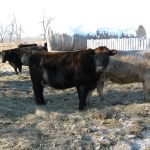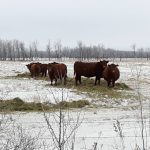Humans often have the dangerous habit of approaching horse needs as though they were large dogs.
That makes it easier for people to relate to horses, but also creates misconceptions about the role of horses in society and what they need to be healthy and happy.
Horses are large, herd-oriented herbivores with complex social dynamics and a need for near-constant foraging in ample space. This lifestyle has shaped their physiological and psychological requirements over millennia and remains essential to their well-being today.
Read Also
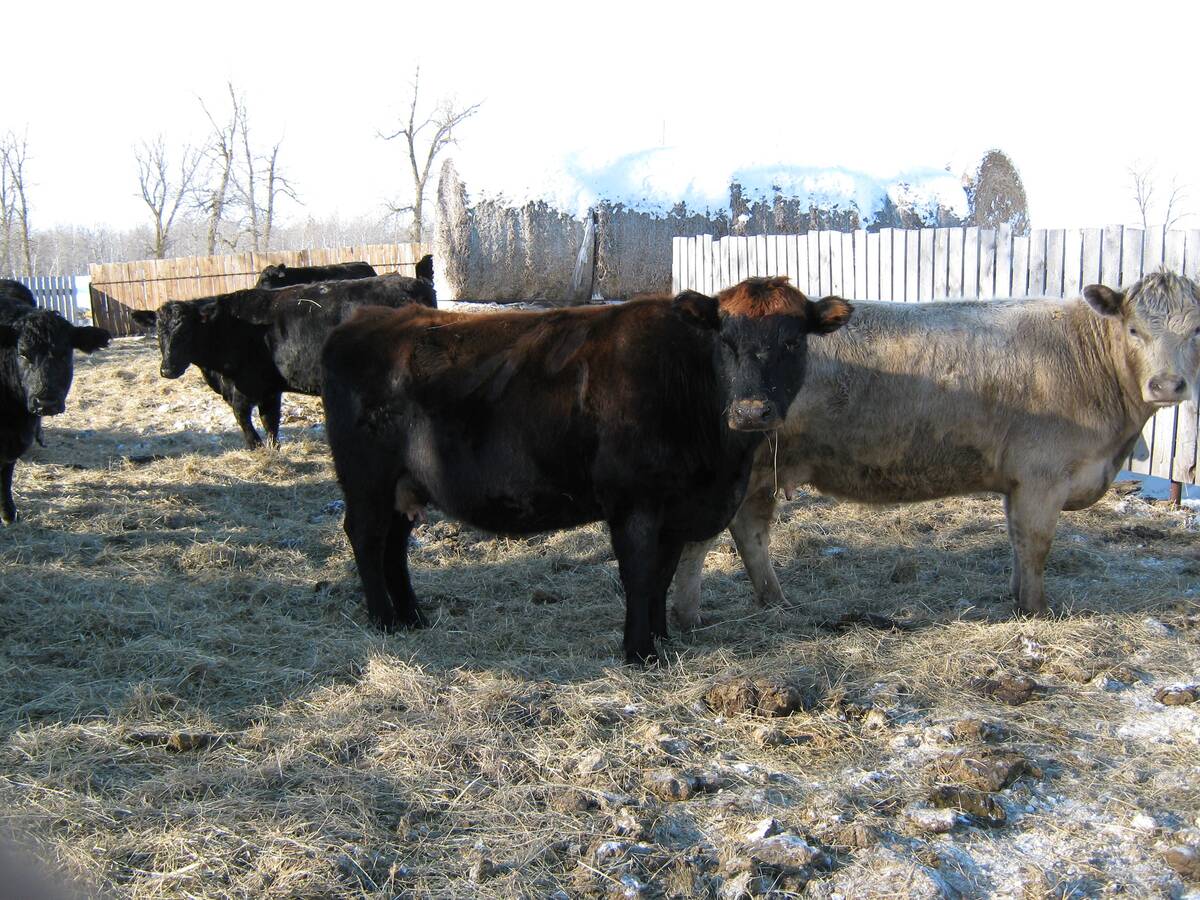
Don’t let winter deplete your cows vital vitamin A reserves
Boost your calving season success: prevent weak calves and maintain gestating cow health by fortifying winter beef diets with vitamin A.
One of the most immediate impacts of treating horses as pets is restriction of movement. Confinement in small spaces such as box stalls and small paddocks is increasingly common in suburban areas.
This limits horses’ ability to engage in natural activity and can lead to a sedentary lifestyle. The result is often obesity, muscle atrophy, loss of topline, dental and digestive issues, hoof problems or metabolic disorders.
Exercise routines suitable for smaller pets, such as short walks or bursts of exercise, are insufficient for horses. They have evolved to be in constant motion as they forage. Inhibiting this constant form of exercise results in illness in the form of unwanted behaviours as well as physical ailments.
Approaching horses like pets also short-changes their diets.
Unlike dogs, which typically have set mealtimes, horses are trickle feeders and need a steady intake of high fibre, low sugar forage throughout the day for optimal digestive health. Neglecting these requirements can lead to dysbiosis, colic, gut ulceration and metabolic problems.
Sugary feeds, too much feed and processed treats can result in over-nutrition and metabolic complications. Behavioural and health issues often arise in horses when their dietary practices do not align with their natural feeding behaviors.
Beyond physical health, the psychological well-being of horses is profoundly affected by social settings and relationships with other horses.
Treating horses as pets may inadvertently isolate them from their own kind. While bonding with humans is important, it cannot fully replace the social needs horses have with their herd mates and the need for constant companionship. Isolation or limited social interactions can lead to stress, anxiety, learned helplessness and a dullness in character.
Dogs have been bred to adapt to human settings and companionship around the clock, but horses typically interact with humans for much shorter periods, often less than an hour per day. They should then spend the rest of their time in the companionship of other horses in a natural environment.
Horses are also on a different time scale than most pets. Dogs and cats mature quickly. Horses have a prolonged period of growth and development over five years. They require specific care and time to support their growing bodies.
Treating them as pets can create unrealistic expectations for their behaviour and physical capabilities. Owners may inadvertently push young horses to behave like fully mature animals before they are ready mentally or physically.
Understanding, respecting and being patient with the natural maturation of horses is essential to avoid long-term negative consequences in their well-being and performance.
When the innate natures of dogs and horses are respected and their needs adequately fulfilled, both show a willingness to learn and interact effectively with humans. However, neglecting these needs in horses by treating them like large dogs can lead to more pronounced and potentially hazardous behaviour. Because horses are much bigger than dogs, situations can escalate quickly.
Misguided pampering of the horse without regard for their size, strength and natural instincts can lead to unwanted behaviour and human safety concerns.
There is a distinct line between pampering and high-quality care. The spoiled horse is often confused, anxious, insecure, pushy and unpredictable, typically through no fault of their own. These horses face an uncertain and challenging future as they gain a reputation for being dangerous and unpredictable to work with.
Commercial markets serving the equine community have influenced how horses are perceived, shifting them from livestock to pets by emphasizing emotional bonds that promote specialized products and services.
While this shift can benefit human-animal relationships, it can also create misleading illusions on the true needs and requirements of a horse.
As the role of horses in society evolves, it brings advances in their care, welfare and preservation, but also poses challenges that affect their health and well-being. Education and advocacy are essential in understanding their needs as large, herbivorous social animals.




